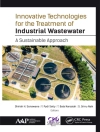This book addresses the fundamental requirement for an
interdisciplinary catchment based approach to managing and
protecting water resources that crucially includes an
understanding of land use and its management. In this
approach the hydrological cycle links mountains to the sea, and
ecosystems in rivers, groundwaters, lakes, wetlands, estuaries and
coasts forming an essential continuum directly influenced by human
activity.
The book provides a synthesis of current and future thinking in
catchment management, and shows how the specific problems that
arise in water use policy can be addressed within the context of an
integrated approach to management. The book is written for advanced
students, researchers, fellow academics and water sector
professionals such as planners and regulators. The intention is to
highlight examples and case studies that have resonance not only
within natural sciences and engineering but with academics
in other fields such as socio-economics, law and policy.
关于作者
Bob Ferrier is the Head of the Catchment Research Group at
the Macaulay Institute and an Honorary Research Fellow in the
College of Physical Sciences, University of Aberdeen. He is a
hydrochemist whose research focuses on modeling the consequences of
environmental change on water resources and on addressing the
global challenge of diffuse pollution. In 2006, he was the first
International Flagship Fellow for CSIRO’s Water for a Healthy
Country Programme advising on research in relation to the
protection of the Great Barrier Reef.
Alan Jenkins is the Water Science Director at the NERC
Centre for Ecology and Hydrology and an Honorary Professor in
hydrochemical modeling in the Department of Geography, University
College London. His background is in water quality modeling with
particular focus on the impact of diffuse pollutants on headwater
streams. He is the chair of the UK Committee for National and
International Hydrology and recently completed a term of office on
the Bureau of the UNESCO International Hydrology Programme.












